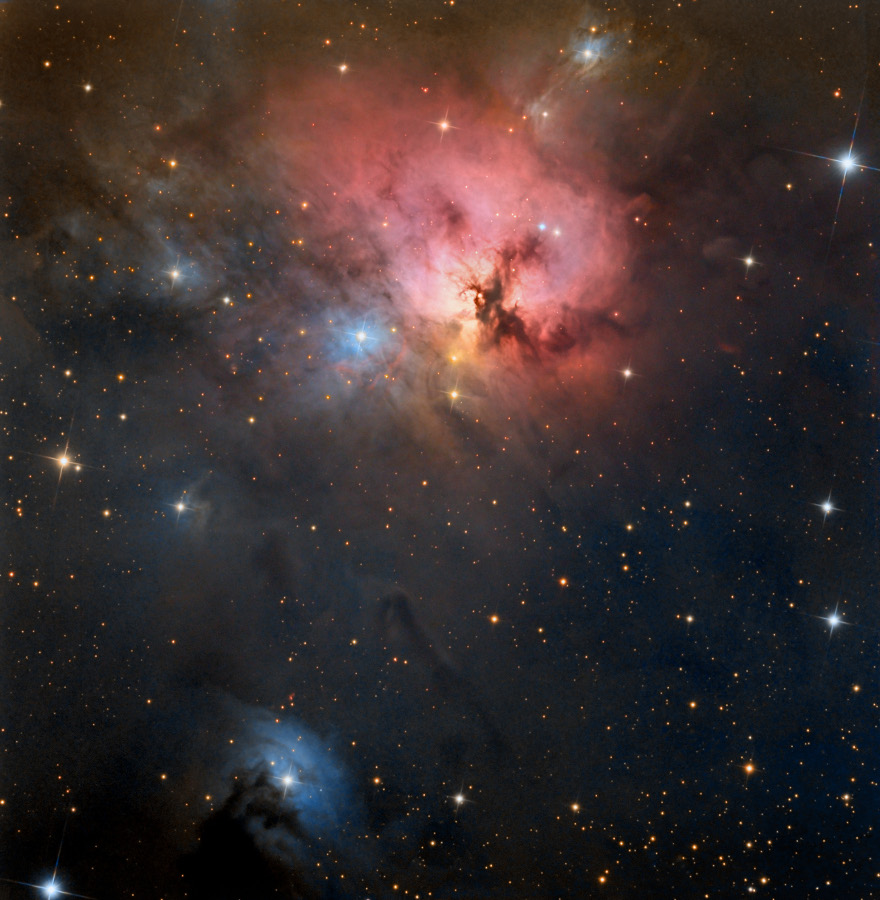Image Copyright: Adam Block, Mt. Lemmon SkyCenter, University of Arizona
By Father George Rutler
 Human imagination cannot conceive the power and pressure that held all the essential elements of the universe together in a piece of matter about the size of a pinhead when the world began. Physicists tend now to date the explosion of that particle to about sixteen billion years ago. Their job is to consider how it happened, not why it happened. The Creator Himself explained the "why" of the beginning in the Book of the Beginning. The Bible begins: “Bereshit bara Elohim et hashamayim ve'et ha'arets. — In the beginning, God created the heaven and the earth” (Genesis 1:1). There was a sound and then light.
Human imagination cannot conceive the power and pressure that held all the essential elements of the universe together in a piece of matter about the size of a pinhead when the world began. Physicists tend now to date the explosion of that particle to about sixteen billion years ago. Their job is to consider how it happened, not why it happened. The Creator Himself explained the "why" of the beginning in the Book of the Beginning. The Bible begins: “Bereshit bara Elohim et hashamayim ve'et ha'arets. — In the beginning, God created the heaven and the earth” (Genesis 1:1). There was a sound and then light.That sound was the Word — the Logos — the divine power that is the logic of all that is. “En arche en ho Logos — In the beginning was the Word” (John 1:1). This stretches the imagination as much as it does basic physics. Thomas Jefferson knew his Greek and quoted John 1 in a letter to John Adams on April 11, 1823. But his mind was not agile enough to interpret this revelation as anything other than a form of polytheism, or “tritheism” as he dismissed the Holy Trinity. Back then, his physics was as primitive as his metaphysics, but even if he could not conceive of the Creation, he was one with all of us in having been conceived. Like the first particle of the universe at the “Big Bang,” all 46 unique chromosomes containing our essential human identity were encoded in us when we began as a single-cell zygote.
When the Holy Spirit, the bond of love between the Father and the Son, “overshadowed” the Virgin Mary, the Eternal Logos “was made flesh and dwelt among us” (John 1:14). In the Annunciation, the young woman conceived “the true light, which enlightens everyone” (John 1:9).
This mystery is recited in Latin at the end of the Extraordinary Form of the Mass, “In principio erat Verbum.” The Eucharist ends with the beginning, for by communion with Christ, human beings become moral agents of their Creator: “To those who did accept him he gave power to become children of God, to those who believe in his name, who were born not by natural generation, nor by human choice, nor by a man's decision, but of God” (John 1:12-13).
Bereshit, En arche, In Principio, In the Beginning . . . whatever the language, there is a beginning with a purpose. That is the source of happiness. When the Logos took a human nature, He also sensed the human emotion of joy. There is one explicit reference to that, when Jesus “rejoiced in the Holy Spirit” and spoke to the Father of hashamayim ve'et ha'arets: “I give you praise, Father, Lord of heaven and earth, for although you have hidden these things from the wise and the learned you have revealed them to the childlike” (Luke 10:21).


No comments:
Post a Comment